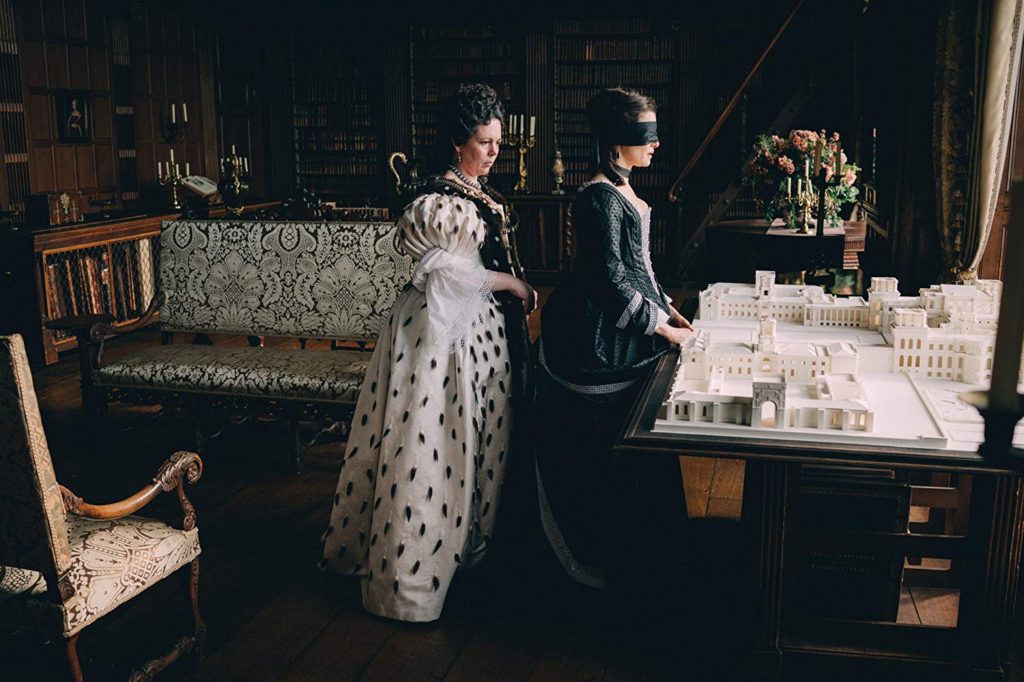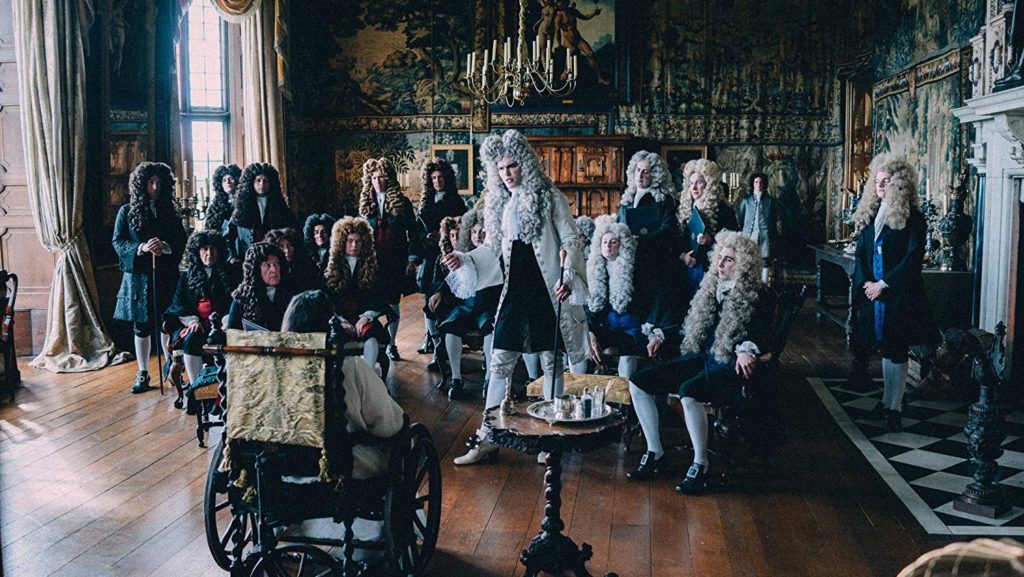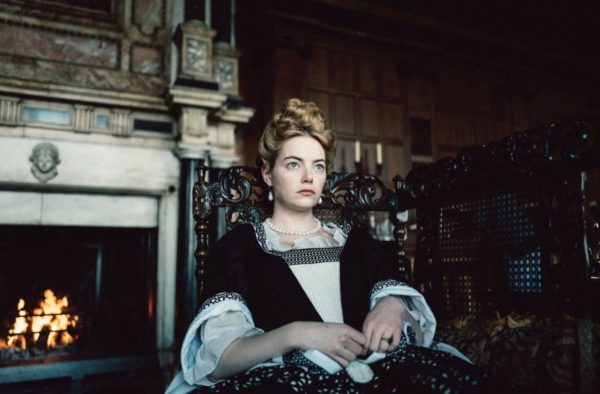The Favourite Review

Typically, you’re either the person who perks up at a trailer for an English period piece or has learned to completely tune out dress-up dramas. “The Favourite” will ruin expectations for both audiences with its playful and wry demeanor yet consummate production values and performances.
For anyone acquainted with Yorgos Lanthimos, this should come as no surprise. The themes of his films are thematically deep and serious, but tonally a sort of twistedly comical. Although he didn’t write “The Favourite,” the fit will be obvious to fans of “Dogtooth” and “The Lobster.” There are lots of characters expected to behave one way who behave another, who defy decorum at great personal risk.
The film takes place at the dawn of the 18th century. Queen Anne (Olivia Coleman), chronically ill, emotionally volatie and without heir, occupies the throne of a politically divided England at war with the French. The Lady Sarah, Duchess of Marlborough (Rachel Weisz) is her confidant and most trusted advisor, a relationship interrupted by the arrival of Abigail (Emma Stone), Sarah’s cousin, who begins work at the estate as a servant and eventually curries favor with Sarah and soon after, the queen. A rivalry between the two women ensues as they jockey for power, politically and personally.

That premise gives zero indication of a break in the period piece or palace intrigue molds, but Lanthimos makes his intentions abundantly clear in the way he films the story and depicts the characters. One would expect, for example a still camera and somewhat lavish frames, giving the characters a dignity and nobility and showcasing ornate details. Instead, Lanthimos is frequently moving the camera, utilizing slow-motion and shifting to a fisheye lens constantly throughout the film to provide ample distortion of the film’s beautiful sets and costumes. He makes the men in their powdered wigs look like clowns and the impeccable halls, chambers and grounds look like an expensive dollhouse.
Coupled with the dialogue of newcomer Deborah Davis and Austrian TV writer Tony McNamara’s script, which dresses up a more contemporary insult humor in the language and dialect of England 300 years ago, we get a decisively irreverent take on women and man’s endless quest for power and political influence.
Three incredible female performers sell this vision. Weisz is in top form and perfectly cast in a role that taps into her naturally powerful on-screen stature. She also has a grasp on Lanthimos’ darker comedic tastes and utilizes that to subvert her image as an actress best suited for serious dramatic roles. Stone also fits perfectly as the film’s only American cast member playing the role of troublemaker and dynamic-shaker. Her range between drama and comedy helps her convey the script’s objective to paint Abigail as both main character and villain.

Although Anne is in many ways a caricature, Coleman gives easily her most dynamic performance as the woman who holds all the power and is least able to hold herself together. The longtime voice and British TV character actor makes every scene a highlight, usually some kind of wacky episode in which her demeanor stops on a dime and pivots in an unexpected direction. Although so much of her role involves timing, there are also moments that take us deeper into her character than any other.
The men of the cast (Nicholas Hoult, Mark Gatiss and others) aren’t even deserving of mention except to say the script intentionally makes mockery of their political games. They are presented with an inauthenticity in comparison to the women by the very nature of the nobleman’s aesthetic. The dynamics of power between the women are much more interesting and multi-layered.
Equally as foreign as the script and Lanthimos’ techniques are to this genre are the ideas present in the story. These films usually present straightforwardly, but the modern eye wants to dig deeper, particularly into the psychology of its core triangular dynamic. Why Sarah and Abigail truly lust for power and favor is distinctly absent, but at the same time, the desire to be wanted and needed — to feel important — is universal. “The Favourite” wants to take a story from a time when those feelings and notions were extremely guarded and private, split the window dressing wide open and spill them out so we can actually relate to them.
4.5/5 Stars
The Favourite
Directed by Yorgos Lanthimos
Written by Deborah Davis, Tony McNamara
Starring: Emma Stone, Olivia Coleman, Rachel Weisz, Nicholas Hoult




1 Comment